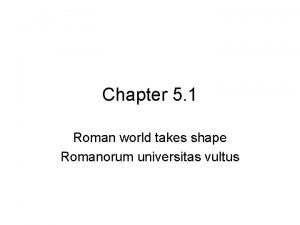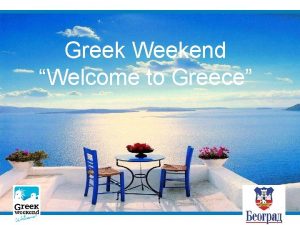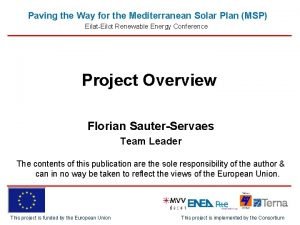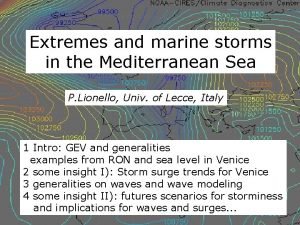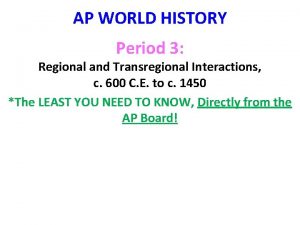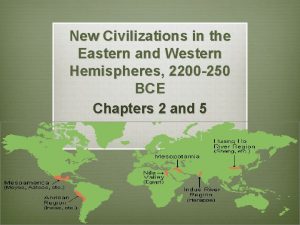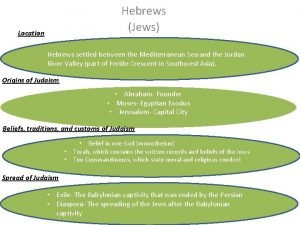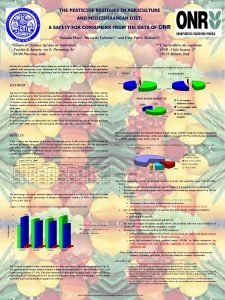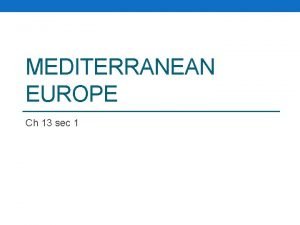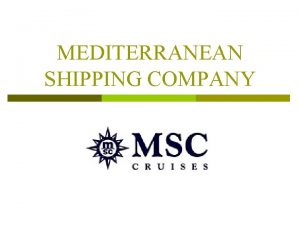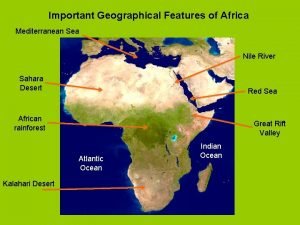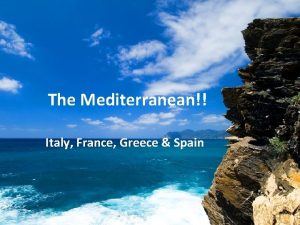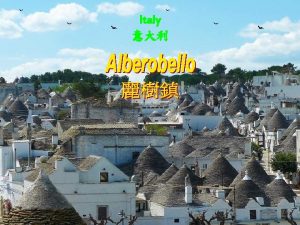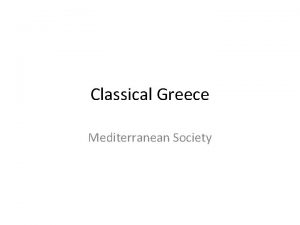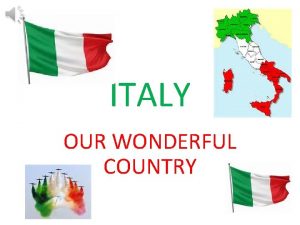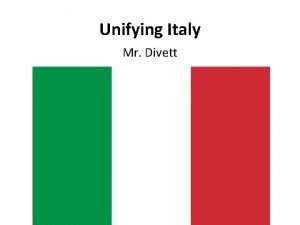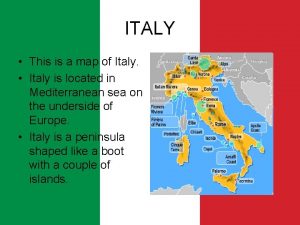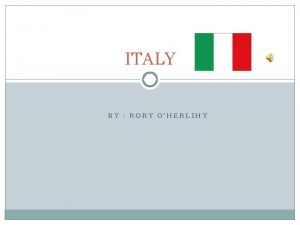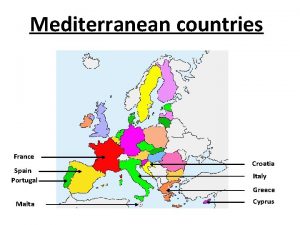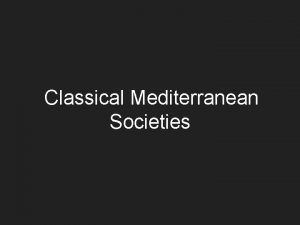Italy Greece Welcome to the Mediterranean Greece Greece
















- Slides: 16

Italy & Greece Welcome to the Mediterranean!!

Greece

Greece - Language n n n n yassou = hello or goodbye (greeting to one person or a friend) adio = goodbye Ameriki = USA ena = one thio = two tria = three Filise me = kiss me

Greece n Greece was once an ancient empire. n It later became part of the Roman Empire. n After the collapse of the Romans, the eastern half became the Byzantine Empire.

Greece n n Greeks lived under foreign rule for over 2, 000 years. They declared their independence in 1829.

Greece - History n n A rise in nationalism, pride in one’s country, led to independence. Greece became a monarchy from 1829 -1967. In 1967, military leaders seized control. Their rule collapsed in 1975. Citizens then decided to become a parliamentary democracy.

Greece – Government/Econ. n n n The president is ceremonial. The prime minister and parliament run the country. Voting is compulsory, or required. Failing to vote is against the law. Greece is a member of the EU. It’s economy consists of tourism, shipping, and fishing.

Greece - Culture n Official language: Greek n Religion: Greek Orthodox n Major holiday: Easter n 2/3 of population live in cities. n Capital: Athens

Italy

Italy - Language n n n n Hello – Ciao Goodbye – Ciao or Arrivederci United States - Stati Uniti 1 – uno 2 – due 3 – tre I miss you – Mi manchi

Italy - History n n 400 s – The Eastern Roman Empire split into many small kingdoms. 1861 – Italian independence comes when the kingdoms unite. Early 1920 s – Benito Mussolini takes control of Italy. He promoted fascism (a political system based on nationalism and ruled by a strong central governor led by a dictator. )

Italy - History n n Mussolini promised a return to the Roman Empire. He allied with Hitler of Germany in WWII against the allies. He was forced out near the end of the war and killed. After WWII, Italians replaced their monarchy with a democracy.

Italy – Government & Econ. n n n Government – Parliamentary Democracy ¾ of Parliament is elected. ¼ is assigned. Because Italy has so many political parties, they must for coalitions, or partnerships, to gain control of parliament. Italy is an industrialized, developed nation. They are a member of the EU.

Italy - Culture n n n Official Language – Italian is a Romance Language (languages descended from Latin and spoken in for Roman Empire territories) Religion – Roman Catholic Home of the Roman Catholic Church is the Vatican City (the smallest country in the world. ) It is located in the center of Rome. The Pope rules the Vatican City. Capital city – Rome

Italy – Government & Econ. n n n Milan, a city in northern Italy, is considered one of the world capitals of fashion. Italy’s northern region has much higher economic growth than the south. Sports – car racing, cycling, & soccer

Italy & Greece n Both were part of the Roman Empire n Both were monarchies, then ruled by dictators, then became democracies. n The southern regions are on the Mediterranean Sea; the northern regions are hilly or mountainous. n Greece and southern Italy still rely on agriculture. n Both are important for their influences on western culture today.
 Why was italy easier to unify than greece
Why was italy easier to unify than greece The roman world takes shape
The roman world takes shape Wise men three clever are we
Wise men three clever are we Welcome to greece in greek
Welcome to greece in greek Mediterranean solar plan
Mediterranean solar plan Storms in the mediterranean sea
Storms in the mediterranean sea Mediterranean sea map
Mediterranean sea map Mediterranean civilizations location hemisphere
Mediterranean civilizations location hemisphere The hebrews settled between the mediterranean sea and the
The hebrews settled between the mediterranean sea and the Make everyday mediterranean
Make everyday mediterranean Mediterranean diet pesticides
Mediterranean diet pesticides Dash diet vs mediterranean diet
Dash diet vs mediterranean diet Danube mediterranean canal
Danube mediterranean canal Chapter 13 section 1 mediterranean europe
Chapter 13 section 1 mediterranean europe Gianlucci
Gianlucci Africa mediterranean
Africa mediterranean Oldwayspt org mediterranean diet
Oldwayspt org mediterranean diet

